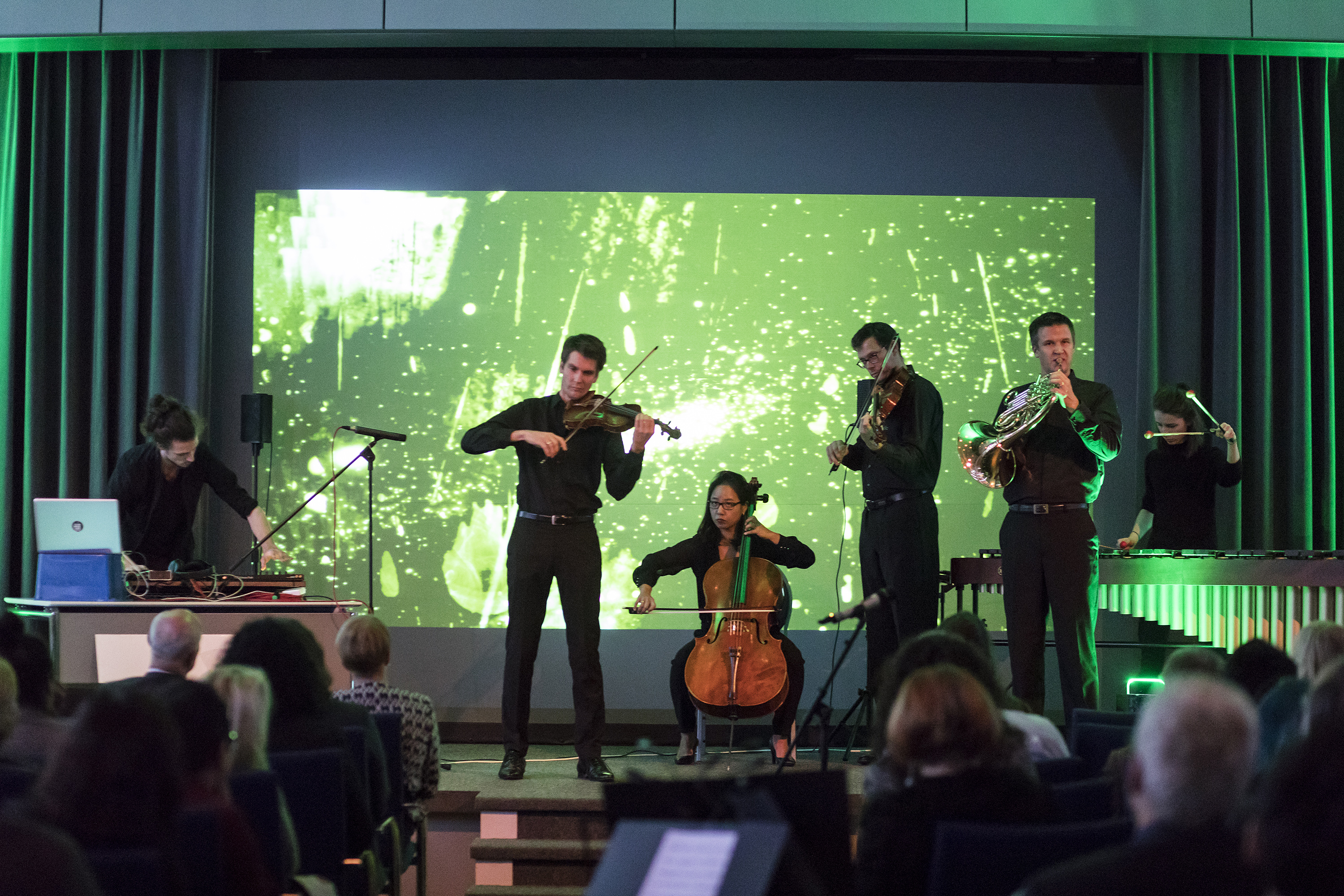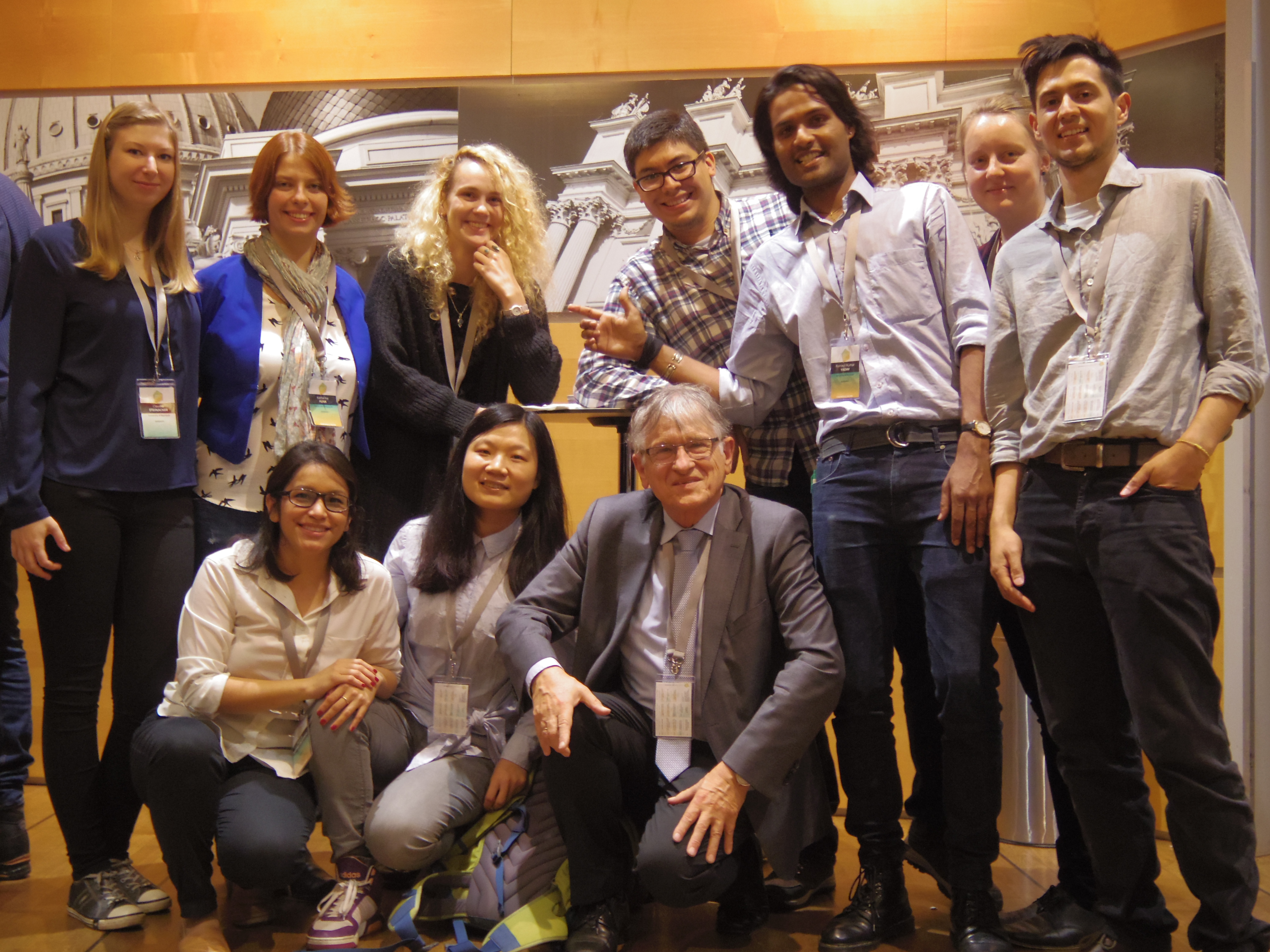By: Katharina Funk, Anna-Lena Hendel, Claudia Steinacker
We have entered a stage of post-truth politics. We need trust in science and facts.
– Prof. Dr. Klaus von Klitzing
Eleven GCE students participated and volunteered at the Impacts World Conference in Potsdam, Germany on the impacts of Climate Change, here their impressions on Day 2 on Climate migration, the PIK’s 25th Anniversary and meeting a Nobel Laureate.
Climate Change and Migration
Consequences of climate change on humans and climate change adaptation were additional topics covered during the Impacts World conference 2017 . We live and will live in a warmer world with new challenges that we need to prepare for. Especially the poor and most vulnerable people will be most affected by expected changes in regional climates, due to decreased food security, livelihood losses and health impacts.
The war in Syria is just one example of how conflicts around the world are fueled by rising food prices caused by drought. Prof. Dr. Jacqueline McGlade, scientist at the Massai Mara University in Kenya, showed us the connection between malnutrition and the degree of conflict in African countries.
Malnutrition of children was shown to lead to brain atrophy, which results in a lower capability to deal peacefully with times of high variability and uncertainty. Without action, malnutrition will likely increase in a warmer world due to drought and other extreme events.
The higher variability and uncertainty caused by climate change will be another factor contributing to critical situations in many economic poor countries. In the extreme case of the pacific island states like Tuvalu, which are projected to disappear due to rising sea levels, questions arise about where its citizens can find refuge, how their legal status will be and if developed countries have to take responsibility according to their greenhouse gas emissions? Until now, climate extremes like drought were usually shown to be a contributor but not the only cause for migration. Interestingly, climate change can also improve cooperation instead of fueling conflicts in periods of drought and other extreme events. Understanding the circumstances in which even extremer conditions lead to cooperation instead of violence is an interesting research field.
PIK’s 25th Year Anniversary
At the evening of the second Impacts World conference day, a remarkable moment was created. After spending already two days with the world’s leading climate scientists, listening to extraordinary speakers, it was then time to celebrate the 25 year anniversary of the Potsdam Institute for Climate Impact Research (PIK), host of the Impacts World Conference 2017.
It took a while for the applause to cease, after the Orchestra of Change, an initiative of the Berlin State Opera, stopped playing.
It took the audience on a journey through space and time, presenting the threats of climate change in a very personal and touching way, and thus the Orchestra of Change left an impression that will last.
The music the audience just heard was especially composed for the occasion of the 25th anniversary celebrations of the PIK.

GCE meets a Nobel Laureate
All leading politicians should be sent on the moon before taking office.
–Prof. Dr. Klaus von Klitzing
There were many remarkable speakers who congratulated PIK to its 25 years of existence, but one of the most remarkable was surely Prof. Dr. Klaus von Klitzing, who received the Nobel Prize in 1985 for his discovery of the integer quantum Hall effect, and who has by now also his own constant. And to prove that he is really a Nobel Laureate, he carries his Medal in the inner pocket of his jacket – and is happy to show it to everyone who is interested. He and the other guests passionately talked about the importance of climate change, the achievements of the PIK and directly addressed us, as young scientists, to continue the great efforts needed to deal with the challenges related to climate change.

See previous article → Day 1
See next article → Day 3









2 Comment